ANNUAL REPORT DALHOUSIE RESEARCH &
INNOVATION
Fiscal Year 2022-23



INNOVATION
Fiscal Year 2022-23



This year, Dalhousie firmly planted its flag as one of the world’s leading ocean universities. Building on a long history of excellence in ocean research, we announced the historic $400 million Transforming Climate Action research program that will make Canada a global leader in climate science, innovation, and solutions by putting the ocean front and centre in the fight against climate change.
Moreover, our Ocean Tracking Network was awarded $38.5 million from the Canada Foundation for Innovation to continue its valuable research monitoring the ocean’s changing environments. Additionally, we received a $15 million grant to study ocean carbon removal as a promising method to help humanity avoid the worst impacts of climate change.
The world is turning to Dalhousie for solutions. Our impact as a global leader is reflected in the Times Higher Education Impact Rankings 2023 which assess universities’ progress towards the UN Sustainable Development Goals (SDG). Dal ranked eighth in the world and first in Canada for SDG 14 – Life Below Water. The depth of our ocean expertise was also reflected in the Academic Ranking of World Universities where again we placed first in Canada and 32nd globally for oceanography.
While ocean research was a standout, we continue to make significant progress across all areas of our research enterprise, administering more than $210 million in research funding to support our efforts. The productivity of our researchers expands every year, with a 16.5% increase in publications over the period 2020–2022.
From ground-breaking clean tech and battery research that propels us toward a greener future, to progressive healthcare scholarship that bolsters our well-being, to agricultural research that safeguards our food supply, and to community-based initiatives that empower external partners to direct, engage in, and reap the benefits of research, we continue to make great strides.
To ensure our research resonates in the world around us, we are strengthening our innovation and entrepreneurship training through Dal Innovates. Offering a pipeline of programs that guide researchers from initial ideas to market-ready enterprises, we are attracting more participants, building more Dal-based ventures, and fostering a growing ecosystem of mentors dedicated to advancing the innovations of the university. Our goal is to provide our researchers and students with the skills, experience, mindset, and resilience to thrive in an innovation economy. This work was recognized last fall with the Deshpande Symposium Award for Technology Commercialization, a global award of excellence for delivering programs that empower researchers with entrepreneurship.
Each year, we aim to deepen our impact in the world. And in FY2022-23 we made a world of impact.
Yours sincerely,
 Dr. Alice B. Aiken, PhD Professor and Vice-President Research and Innovation
Dr. Alice B. Aiken, PhD Professor and Vice-President Research and Innovation
We all want to leave the world a better place than where we found it – at Dal we have a strategy for that. By focusing our research efforts on Signature Research Clusters that reinforce our strengths and by aligning our impact with the United Nations’ Sustainable Development Goals (SDG) we are creating meaningful contributions to the region, nation and world.










We all want to leave the world a better place than where we found it – at Dal we have a strategy for that. By focusing our research efforts on Signature Research Clusters that reinforce our strengths and aligning our impact with the United Nations’ Sustainable Development Goals (SDG) we are creating meaningful contributions to the region, nation and world.










SUSTAINABLE OCEAN



CLEAN TECH, ENERGY, THE ENVIRONMENT



SIGNATURE RESEARCH CLUSTERS
CULTURE, SOCIETY, COMMUNITY DEVELOPMENT

HEALTHY PEOPLE, HEALTHY COMMUNITIES, HEALTHY POPULATIONS


SIGNATURE RESEARCH CLUSTERS

FOOD SECURITY

ULTURE, SOCIETY, COMMUNITY DEVELOPMENT
Demonstrating our commitment
Explore how Dalhousie is addressing each of the SDGs on our Global Goals website.























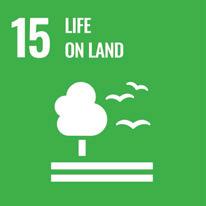

Metrics provide a snapshot of what we have accomplished. They help us track our progress, where we are thriving and where we have room to grow.
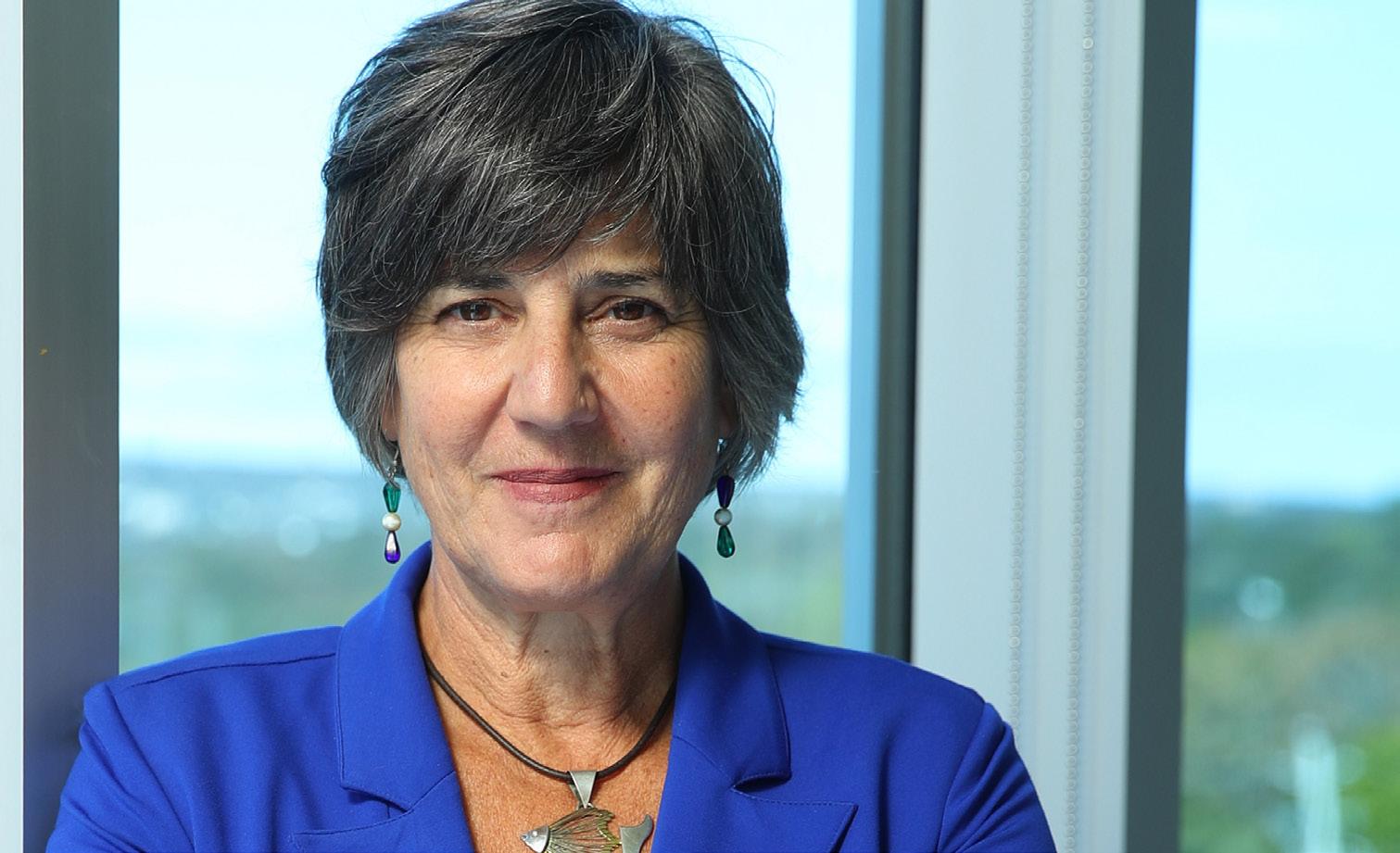
A new era of ocean and climate research began at Dalhousie with the announcement of the seven-year Transforming Climate Action research program. The program aims to make Canada a global leader in climate science, innovation, and solutions by taking an ocean-first approach to the fight against climate change.
Made possible by a historic $154 million investment from the Government of Canada through the Canada First Research Excellence Fund, the research grant is the largest ever received by the university. The funding will contribute to a $400 million research program that will see Dalhousie lead a partnership with Université du Québec à Rimouski, Université Laval, and Memorial University comprising more than 170 scholars.
The ocean absorbs up to four times more CO2 from the atmosphere than terrestrial forests. But emerging science shows its ability to absorb CO2 and regulate temperatures is changing in ways we don’t understand. Dalhousie and its partners will fill the knowledge gap.


“What we need to do is reduce uncertainty about how the ocean is functioning so that we can rise to meet the challenges we face.”
Dr. Anya Waite
Scientific
Transforming Climate Action by the numbers
$400M research program
$154M grant from the Government of Canada
$116M from academic partner institutions Dal, UQAR, Laval, Memorial

$127M from private and public sector collaborators
170+ researchers
40+ national and international partners
Strategic alliances with world-leading centres for ocean and atmospheric science, including:
U.S. National Oceanic and Atmospheric Administration (NOAA)
National Aeronautics and Space Administration (NASA)
Woods Hole Oceanographic Institution
GEOMAR - Helmholtz Centre for Ocean Research Kiel
Investments by our federal and provincial governments, industry and not-for-profit partners, and other sources keep our faculty at the forefront of their research fields. We are better able to attract and retain the very best researchers and train the next generation.

Research funding administered: FY2022-2023
Federal government
$ 117,497,794
Other
$1 ,384 ,427
Not for profit
$22 ,712 ,171
Total Research Funding : $210,741 ,522
Universities/colleges
$19,783,598
Institutes/centres/networks
$10,792 ,771
Industr y
$ 23,779,196
Foreign government
$1 ,361 ,468
Provincial government
$13,430,097
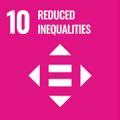

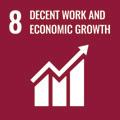
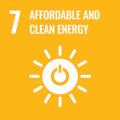








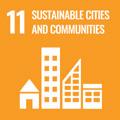


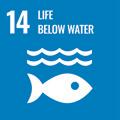
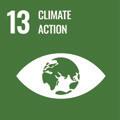
The Office of Research Services helps our faculty seek financial support for their research, undertake collaborative research with industry, government, and international organizations, and ensures excellence in research practices.
ORS by the numbers: FY2022-2023
Funding applications submitted: FY2022-2023
Initiative/Project
Transforming Climate Action
PI/Faculty

Dr. Anya Waite, Faculty of Science
Dr. Mike Smit, Faculty of Management
Canada First Research Excellence Fund, academic partners, private and public sector collaborators, including Research Nova Scotia and Fonds de Recherche du Québec

Amount Awarded
$154.4M CFREF
$116M academic partner institutions
$127M private & public sector collaborators
Ocean Tracking Network
Dr. Sara Iverson, Faculty of Science
Canada Foundation for Innovation Major Science Initiatives, Research Nova Scotia, partnering organizations
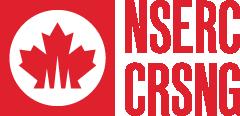
$38.5M CFI
$1.2M RNS
$28M private and public sector partners
Ocean Alk-align: Aligning ocean alkalinity enhancement for sustainable, safe and verifiable long-term CO2 removal
Partnership for Innovation in Climate Change Adaptation in Water and Wastewater Treatment
Canadian Immunization Research Network
Exposome profiling as an emerging tool for lung cancer early detection and prevention
Climate Action Evaluation: Development of a Bottomup, Activity-based Transport Network and Emissions Modelling System
Dr. Katja Fennel, Faculty of Science
Carbon to Sea Initiative $15M

Dr. Graham Gagnon, Faculty of Engineering
Natural Sciences and Engineering Research Council & partnering organizations $9.26M
Dr. Scott Halperin, Faculty of Medicine
Dr. Robin Urquhart, Faculty of Medicine
Dr. Ahsan Habib, Faculty of Architecture & Planning
Canadian Institutes of Health Research $6M
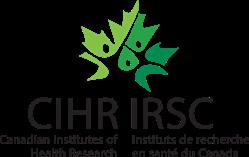
Canadian Cancer Society $5.2M
Environment and Climate Change Canada: Climate Action and Awareness Fund $3.6M

The Ocean Tracking Network (OTN), led by scientific director Dr. Sara Iverson, was awarded a grant of $38.5 million from the Canada Foundation for Innovation’s Major Science Initiatives Fund. Collaborators around the world use OTN’s global infrastructure and analytical tools to document the movements of more than 300 keystone and commercially and culturally valuable aquatic species in the context of changing ocean and freshwater environments.
Dalhousie received nearly $15 million from the United Statesbased Carbon to Sea Initiative to lead a global five-year program headed by Dr. Katja Fennel that will study ocean alkalinity enhancement – an approach for atmospheric carbon removal that aims to mitigate climate change.


“It is of utmost importance that these issues are investigated by scientists who have no financial interests in the research outcomes and are driven solely by the desire to ensure safe implementation if, and only if, ocean alkalinity proves to be effective at removing CO2.”
Dr. Katja Fennel Chair, Department of OceanographyA Dalhousie research project to improve understanding of the greenhouse gas emissions of municipalities received $3.6 million through Canada’s Climate Action and Awareness Fund. Led by Dr. Ahsan Habib, the project team will develop a framework for data collection and mathematical modeling to determine how much is emitted daily within the transportation sector.

In our food systems Canada's food system contributes up to 40 percent of Canada’s human-caused greenhouse gas emissions. Dr. Gordon Price from the Faculty of Agriculture will lead $1.4 million research project supported by an NSERC Alliance grant to quantify food system greenhouse gas emissions from cradle to grave and develop effective mitigation strategies at a community level.
“There is a need, particularly from the data and modeling side, for helping municipalities quantify GHG so they can benchmark to achieve net-zero.”
Dr. Ahsan Habib FounderDr. Sherry Pictou is helping to lead a $24 million New Frontiers in Research Fund project supported by the Government of Canada. Titled Ărramăt, the research program will include 150 Indigenous organizations, universities, and other partners, and 70 ecosystems around the world that are spiritually, culturally, and economically important to Indigenous Peoples. The project aims to leverage Indigenous ways of knowing to address issues such as food security, human-wildlife management, and the decolonization of science.
“We need to ask two questions. What are Indigenous perspectives on the stewardship and management of natural resources — our relationship with Mother Earth? And, even more so, what are the perspectives of Indigenous women and gender diverse persons and how can they be considered in decision making processes that ultimately impact them?”
Dr. Sherry Pictou Canada Research Chair in Indigenous Governance Schulich School of Law and School of Public Administration
Dr. Melanie Zurba is co-leading a project in partnership with the Unama’ki Institute of Natural Resources (UINR) in Cape Breton focused on creating knowledge and tools for Mi’kmaq and other Indigenous communities to improve the influence of Indigenous leadership in the management of natural resources. The project is funded by close to $500K from SSHRC’s Race, Gender and Diversity Initiative.

“Historically, the academic would come up with their own questions and then bring in a community partner. This is a different approach. The community is involved right from the start in scoping what it’s all about.”
Dr. Melanie Zurba School for Resource and Environmental StudiesThe Canadian Immunization Research Network (CIRN), led by Dalhousie vaccinologist Dr. Scott Halperin received $6 million in new funding from the Canadian Institutes of Health Research. Bringing together more than 150 investigators from 58 institutions across Canada, CIRN undertakes clinical research, surveillance and epidemiological research, and public health program evaluation to help ensure the safety and wellbeing of Canadians.

Dr. Sherry Stewart will lead a new Atlantic Canadian research “node” dedicated to guiding substance use health policies and practices funded by the Canadian Institutes of Health Research. The Atlantic node will receive $2.4 million as part of the Canadian Research Initiative in Substance Misuse.
“We look forward to working collaboratively with addictions researchers, service providers, persons with lived and living experience of substance use, Indigenous communities, and policy-makers, to conduct clinically relevant research that will ultimately improve the services available in the Atlantic Region.”
Dr. Sherry Stewart Canada Research Chair in Addiction and Mental Health Department of Psychiatry and Department of Psychology and Neuroscience
Due to our exposure to cancer-causing substances such as arsenic, radon gas and air pollution, lung cancer can occur in people who have never smoked. With $5 million in funding from the Canadian Cancer Society, a research team led by Dalhousie's Dr. Robin Urquhart of the Department of Community Health and Epidemiology is working to ensure environmental factors are considered when assessing a person’s risk of lung cancer.

Dalhousie sent two doctoral chemistry students to share their world-improving ideas at the Falling Walls Lab pitch competition in Berlin, Germany. On stage in front of hundreds, including Nobel Prizewinners and thought leaders from around the globe, the researchers shared their innovations for creating hydrogen fuel on demand and a 50-year lithium-ion battery. To get to the finals, the pair won the regional Falling Walls Lab Atlantic Canada pitch competition. Now an annual event, the competition sponsored by Dalhousie provides a platform for the most exciting ideas to better human existence to come forward from across the region each year.

“There are very few opportunities for someone at my career stage to have a literal global stage to share their research. It’s an amazing reminder of what it’s all for. Suddenly it all makes sense.”
Tina Taskovic PhD candidate, Department of Chemistry
Dalhousie received an international award for its work facilitating the transformation of student and researcher innovations into commercially viable products and services. Dal Innovates received the Deshpande Symposium Award for Technology Commercialization, along with fellow recipient the Indian Institute of Technology-Madras. The award recognizes leading universities globally for excellence in delivering programs that empower students and researchers to turn their research-based innovations into market-ready enterprises.
“It was a tremendous validation of the programs we’ve partnered to build at Dalhousie over the past several years to help students and researchers gain the skills and mindset to turn their ideas into innovations, and innovations into startups,”
 Jeff Larsen Assistant Vice President, Innovation and Entrepreneurship
Jeff Larsen Assistant Vice President, Innovation and Entrepreneurship




Focused on empowering the Dalhousie community and beyond to build and contribute to successful ventures, our programs equip undergrads, graduate students, postdocs, and faculty for every step along the venture creation journey. From establishing a market need, to building a prototype, to sourcing investment, our ecosystem is there to support.

Dalhousie’s pipeline of programs and support is building our community’s entrepreneurial mindset and capacity for venture creation. The result has been more market-ready innovations, increasingly entrepreneurial ambitions of students and faculty, and an ever-expanding network of mentors and partners working with our community.
When Dr. Ravi Kempaiah brought his startup Zen Electric Bikes to Lab2Market Launch he intended to leverage its entrepreneurship training to revolutionize the e-bike market. But during the 12-week program focused on business model validation the e-bike evangelist had a revelation. While his bikes are state-of-art – the result of extensive design prototyping during a residency at the Emera ideaHUB – Kempaiah realized Zen’s battery science is what truly sets the company apart. So, he pivoted and is now on track to building a battery company set to supply a burgeoning global market worth billions.
“Our mentors said, ‘Ravi, look at the forest, not just a single tree. Look at the real essential – the battery that goes into every two-wheeled electric vehicle on the planet’”
Dr. Ravi Kempaiah CEO, Zen Energy Dalhousie Postdoctoral Research Fellow
66 RESEARCHERS SUPPORTED
13 START-UPS FORMED $2.4M FUNDING SECURED



114 NEW EMPLOYEES
28 START-UPS SUPPORTED $4.8M FUNDING SECURED
162 NEW EMPLOYEES
78 START-UPS SUPPORTED $34M FUNDING SECURED
160 WORKSHOPS 11 COUNTRIES 3900 PARTICIPANTS

Creative Destruction Lab –Atlantic delivers an objectivesbased program for massively scalable, seed-stage, science- and technology-based companies. Ticking over $1 billion in equity value creation this year since the time the program was established, Atlantic Canadian companies represent 60 per cent of the ventures supported. International reach has also expanded, with ventures from 14 countries represented.

MindFrame Connect, based at Dalhousie, is a national program focused on upskilling mentors, mentees, and entrepreneurs from Canada and beyond by providing access to expert training, resources, and tools designed to improve performance. Program highlights for FY2022-23 include the development of an Advanced Mentorship micro-credential at Dalhousie, and the addition of an EDIA program stream.


Dalhousie’s Office of Commercialization and Industry Engagement (OCIE) is the university’s gateway for collaboration between industry and Dalhousie’s talented research teams. With a mandate to support the university’s researchers and economic development in the region and beyond, OCIE provides strategic access to the university’s intellectual property and expertise for the creation of startups and to support the R&D needs of organizations. A commercialization and industry engagement leader in Atlantic Canada, OCIE is a key driver in mobilizing innovation and strengthening economic development.

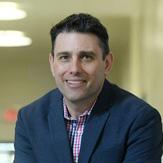
A new grant of more than $9 million from NSERC and partnering organizations is enabling Dal researchers focused on water testing and treatment to work with public and private sector organizations to understand the coming impacts of climate change. Led by Dr. Graham Gagnon, the team is studying how rising temperatures affect our water systems, from the water we drink to the water we pump into the world.
“When an organization designs a treatment plant, they typically design for a 25- to 50-year lifecycle. You have to ask, ‘If the temperature changes by one and a half degrees, does that mean I’m treating something different? Do I have to put other provisions in my treatment plant as a consequence?’”
Dr. Graham Gagnon Director, Centre for Water Resource Studies Department of Civil and Resource EngineeringThe OVPRI’s Next Wave Fund provides support for centres and institutes to accelerate research and innovation initiatives. The 2022 recipients are:
• Beatrice Hunter Cancer Research Institute and the Institute for Comparative Genomics
• Brain Repair Centre
• Black Studies Research Institute
• Centre for Transformative Nursing and Health Research
• Centre for Water Resources Studies
• The Dallaire Institute for Children, Peace and Security
• Healthy Populations Institute
• Law and Technology Institute
• Marine and Environmental Law Institute
Dallaire Institute for Children, Peace and Security received nearly $2.7 million from the German Federal Foreign Office to support work preventing the recruitment and use of children in armed violence. The Placing Children at the Heart of Peace and Security in Africa project will accelerate the implementation of the Vancouver Principles on Peacekeeping and the Prevention of the Recruitment and Use of Child Soldiers across Africa. It also aims to increase the capacity of the African security sector to prevent the recruitment and use of children in violence and integrate children’s and community perspectives into security sector operations.

Dalhousie’s network of institutes and centres bring thought leaders together to maximize their impact in key areas of study.
Dalhousie research facilities consist of platforms, technologies, and equipment that play a critical role in supporting scientific inquiry across the university.

A team of researchers is using the Aquatron facilities to conserve the Atlantic whitefish, a species that dates back 14 million years, exists only in a rural Nova Scotia watershed and is on the brink of extinction. Canada’s largest university aquatic research facility, the Aquatron provided the environment necessary to produce 2,200 juvenile whitefish that were released into a watershed near Bridgewater, N.S.
Canada Research Chairs (CRCs) empower Canadian universities to achieve the highest levels of research excellence and are a cornerstone of Canada’s strategy to become a global research leader.

Tier 1 CRCs announced between January 1, 2022 and April 30, 2023
Appointed for seven-year terms supported with annual $200,000 grants to the university.
Dr. Gregory Fairn
Title: Tier 1 Canada
Research Chair in Multiomics of Lipids and Innate Immunity

Type: New Faculty: Medicine
Dr. Kate Swanson
Title: Tier 1 Canada
Research Chair in International Peace, Security and Children

Type: New
Faculty: Arts and Social Sciences
Tier 2 CRCs announced between January 1, 2022 and April 30, 2023
Appointed for five-year terms supported with annual $100,000 grants to the university, and an additional $20,000 per year for those in their first term.
Dr. Channakeshava Umeshappa


Title: Tier 2 Canada Research Chair in Human Immunology and Inflammation
Type: New Faculty: Medicine
Dr. Javeria Hashmi
Title: Tier Canada Research Chair in Pain Research
Type: Renewed Faculty: Medicine
Dr. Stefanie Colombo

Title: Tier 2 Canada Research Chair in Aquaculture Nutrition
Type: Renewed
Faculty: Agriculture
Dr. Lam Ho

Title: Tier 2 Canada
Research Chair in Stochastic Modelling

Type: Renewed
Faculty: Science

Dalhousie is one of just five universities in Canada to receive support from the Killam Trusts for scholarships, fellowships, prizes, and other funding. Since 1967, the trusts have provided more than $1 billion in support. No other private philanthropic effort has contributed this level of funding to higher education in Canada.
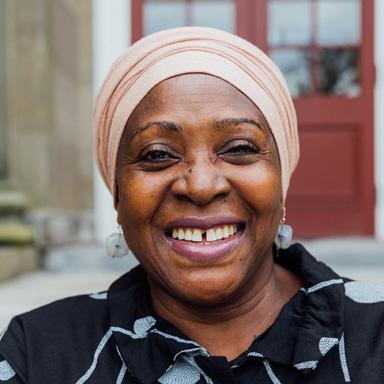


Drs. Françoise Baylis and Jeff Dahn were each honoured with the $100,000 Killam Prize, winning two of the five prestigious awards granted annually by the Killam Trusts.

Dr. Baylis is a world leading bioethicist guiding the discussion on how to proceed with human genome editing for reproduction. Dr. Jeff Dahn is a major force in battery science, who created much of the technology that has enabled lithium-ion batteries to become a preferred power source.

The Killam Memorial Chairs are awarded to academics of the highest distinction at Dalhousie with appointments of up to five years. The current chairs are:
The title of Distinguished Research Professor is granted to faculty members who have achieved distinction as leading scholars in their fields. In 2022 the title went to:
Emerging Investigator awards


• Dr. Erin Bertrand, Faculty of Science
• Dr. Francesca Di Cara, Faculty of Medicine

• Dr. Brendan Leung, Faculty of Dentistry
• Dr. Eric Oliver, Faculty of Science
• Dr. Olga Theou, Faculty of Health
• Dr. Tom Ue, Faculty of Arts & Social Sciences
Research Impact awards
• Dr. Daniel Boyd, Faculty of Dentistry
• Dr. Dana Kabat-Farr, Faculty of Management
• Dr. Jeanna Parsons Leigh, Faculty of Health
Dalhousie and the OVPRI have established awards to support our research community and encourage the pursuit of research of strategic importance.

The Belong Research Fellowships support tenure-track faculty from equity groups to pursue small research projects of 1-2 years’ duration. The 2021 and 2022 recipients are:
2021
• Dr. Mayra Donaji Barrera Machuca, Faculty of Computer Science
• Dr. Qi Deng, Faculty of Management
• Maria Dugas, Faculty of Law
• Dr. Ana Maria Gonzalez Barrero, Faculty of Health
2022
• Dr. Stacy Allison-Cassin, Faculty of Management
• Dr. Sara Ross, Faculty of Law
• Dr. Xiaohong Sun, Faculty of Agriculture
• Cheryl Simon, Faculty of Law
• Dr. Rina Wehbe, Faculty of Computer Science
The VP Research and Innovation International Seed Fund supports the development of international research initiatives between Dalhousie researchers and their global partners. The 2021 and 2022 recipients are:

2021
• Dr. Mayra Donaji Barrera Machuca, Faculty of Computer Science
• Dr. John Blake, Faculty of Engineering
• Dr. Zhenyu Cheng, Faculty of Medicine
• Dr. Israat Haque, Faculty of Computer Science
• Dr. Manuel Helbig, Faculty of Science
• Dr. Kevin Hewitt, Faculty of Science
• Dr. Sean Myles, Faculty of Agriculture
• Dr. Kyle John Wilby, Faculty of Health
• Dr. Haorui Wu, Faculty of Health
• Dr. Alexa Yakubovich, Faculty of Medicine
2022
• Dr. Ahmad Al-Mallahi, Faculty of Agriculture
• Dr. Lisa Berglund, Faculty of Architecture & Planning
• Dr. Salvio Digesto, Faculty of Arts & Social Sciences
• Dr. Kelvin Fong, Faculty of Science
• Dr. James Forren, Faculty of Architecture & Planning
• Dr. Jamila Ghaddar, Faculty of Management
• Dr. Joyline Makani, Dalhousie Libraries
• Dr. Zeeshan Sheikh, Faculty of Dentistry
• Dr. Sherry Stewart, Faculty of Science
• Dr. Philip Tibbo, Faculty of Medicine
Dr. Afua Cooper won the prestigious Royal Society of Canada’s J. B. Tyrrell Historical Medal for her scholarly work that has raised the profile of the African Canadian experience. She wrote "The Hanging of Angelique, The Untold Story of Canadian Slavery and the Burning of Old Montréal", which is credited for dispelling misconceptions of Canada’s experience with slavery. A continual best seller since its publication in 2006.

“For them to recognize the work that I’m doing, which focuses predominantly on Black history, it signals that they recognize the importance of this other history that has been at the margins for so long — recognizing it as an integral thread of Canadian history.”
Dr. Afua Cooper Department of Sociology and Social Anthropology
• Dr. John Archibald, Faculty of Medicine
• Dr. Christine Chambers, Faculties of Science and Medicine
• Dr. John Crowley, Faculty of Arts and Social Science
• Dr. Karen Foster, Faculty of Arts and Social Science
• Dr. Aaron MacNeil, Faculty of Science
Prizes and honours
Canadian Academy of Health Sciences
• Dr. Susan Kirkland, Faculty of Health
Steacie Prize
• Dr. Erin Johnson, Faculty of Science
Alfred P. Sloan Research Fellowship
• Dr. Saurabh Chitnis, Faculty of Science
The Canadian Cancer Society William E. Rawls Prize
• Dr. Robin Urquhart, Faculty of Medicine
International Association of Hydrogeologists, Canadian National Chapter Early Career Hydrogeologist Award
• Dr. Barret Kurylyk, Faculty of Engineering
Global Young Academy Member
• Dr. Rita Orji, Faculty of Computer Science
Academy of Operative Dentistry Hollenback Memorial Prize
• Dr. Richard Price, Faculty of Dentistry
Scialog Collaborative Innovation Award
• Dr. Mita Dasog, Faculty of Science
Prizes and honours by the numbers
3 NSERC HERZBERG GOLD MEDALS
6 KILLAM PRIZE RECIPIENTS
26
CANADIAN ACADEMY OF HEALTH SCIENCES FELLOWS
17
47 ROYAL SOCIETY OF CANADA FELLOWS
ROYAL SOCIETY OF CANADA COLLEGE MEMBERS
Science Champion
• Dr. Arunika Gunawardena, Faculty of Science
Emerging Professional
• Dr. Souvik Mitra, Faculty of Medicine
Innovation
• Mo AlGermozi (alumnus), co-founder, president & CEO of Graphite Innovation Technologies
Dr. Michael Ungar has gained a global reputation for challenging assumed wisdom that people independently summon the strength needed to thrive. In 2022, he was ranked by the journal Research of Social Work Practice as the world’s leading social work researcher based on the impact of his scholarly writing and citations.

“When I first started publishing, it was still difficult to get into the higher-impact scholarly journals because the ideas were bucking the normal trend of the conversation. So, it is a testament to the strength of the work and the colleagues and doctoral students I’ve worked with.”
Dr. Michael Unger Tier 1 Canada Research Chair in Child, Family andCommunity Resilience
Department of Social WorkThe Dalhousie Research Advisory Committee (DRAC) provides advice to the Vice-President Research and Innovation on issues relating to the research enterprise at Dalhousie University.
Membership (as of March 2023)
Dr. Alice Aiken, Vice President Research and Innovation (Chair)
Dr. Jennifer Bain, Associate Vice President Research
Dr. Jamie Baxter, Associate Dean Research, Faculty of Law
Dr. Shaun Boe, Associate Dean Research, Faculty of Health
Dr. Chris Cutler, Associate Dean Research, Faculty of Agriculture
Dr. Eileen Denovan-Wright, Associate Dean Research, Faculty of Medicine
Dr. Adam Donaldson, Associate Dean Scholarships and Programs, Faculty of Graduate Studies
Dr. Mark Filiaggi, Associate Dean Research, Faculty of Dentistry
Dr. Karen Foster, Associate Dean Research, Faculty of Arts and Social Sciences
Stephen Hartlen, Assistant Vice President, Industry Relations
Laura Hynes-Jenkins, Director, Government Relations
Dr. Laurent Kreplak, Associate Dean Research, Science
Jeff Larsen, Assistant Vice President, Innovation and Entrepreneurship
Dr. Frank MacMaster, Vice President, Research and Innovation, IWK Health Centre
Dr. Balakrishnan Prithiviraj, Assistant Vice President, Global Relations
Dr. Theresa Rajack-Talley, Vice-Provost, Equity & Inclusion
Dr. Marlies Rise, Assistant Vice President, Research Services
Dr. Mikiko Terashima, Associate Dean of Research, Faculty of Architecture & Planning
Dr. Gail Tomblin Murphy, VP Research, Innovation & Discovery and Chief Nurse Executive, NSH
Dr. Peter VanBerkel, Associate Dean Research, Faculty of Engineering
Michael Vandenburg, Dean of Libraries
Dr. Anya Waite, Associate Vice President (Ocean) & Scientific Director, Ocean Frontier Institute
Trevor Weissent, Managing Director, Finance and Operations
Dr. Dominika Wranik, Associate Dean of Research, Faculty of Management
Dr. Nur Zincir-Heywood, Associate Dean Research, Faculty of Computer Science
